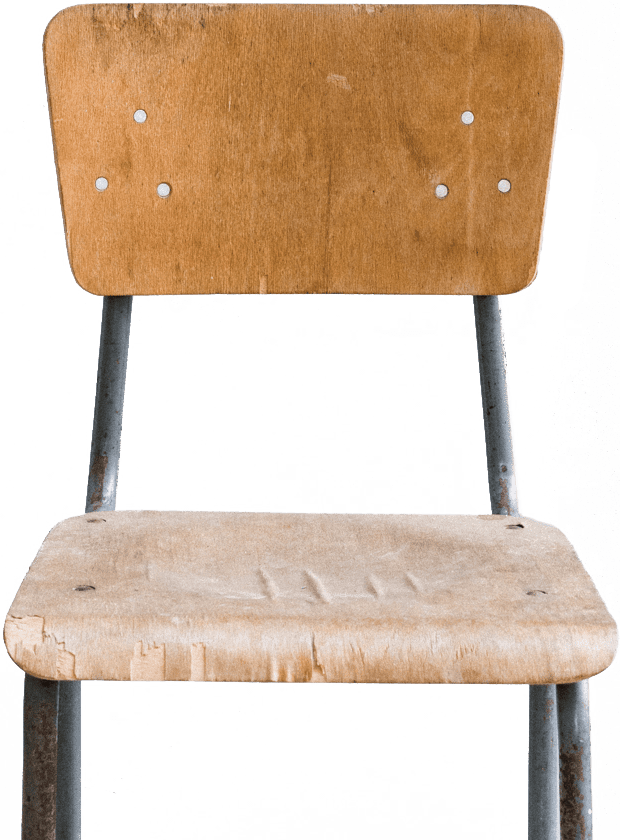
Ten Ways to Protect Your Assets from Mainecare, Medicaid or a Nursing Home
Asset protection can mean different things. For instance, if you are a surgeon, or a hedge fund manager, or you just sold your business, asset protection techniques and strategies are different from someone interested in protecting from loss due to a potential future stay in a nursing home. This article is about asset protection to prevent loss of wealth due to a stay in a nursing home.
What if I don’t have any assets?
What if I give my assets away?
What if I stay at home?
#10 Don’t Have Any Assets
protect your assets from nursing homes and Mainecare (Medicaid) recovery liens
Many of my workshop attendees ask how they can protect their money from Medicaid (Mainecare)? Nursing home costs are very high. When presented with this fact, some of my workshop attendees simply say, that their plan is not to own anything. Not owning anything is a common response from the people who come to my workshops. After all, I’ve had the same thought when faced with my own fiscal concerns. For instance, paying for my kid’s college, and at the same time, an expensive home repair. The thought occurs to you. Wouldn’t it be simpler if I had nothing? Once you get past this natural reaction, you realize the better option is to invest in a plan. If you have accumulated assets why not use your money to provide for yourself and your loved ones. People tell me everyday that their best friend, parent, brother, sister just went through this. “One minute we were having brunch together, the next minute I was visiting her in a nursing home. She lived in a room with two other people. One was shouting all the time, the other was watching CNN so loud that neither of us could hear the other. I want a private room if it comes to that.” And there it is, “I want a private room.” How are you going to get the private room if you have no assets? If you have no money to pay for it? If you don’t have any assets you don’t have the ability to make yourself more comfortable if you do need nursing home care.
“One minute we were having brunch together, the next minute I was visiting her in a nursing home. She lived in a room with two other people. One was shouting all the time, the other was watching CNN so loud that neither of us could hear the other. I want a private room if it comes to that.” And there it is, “I want a private room.” How are you going to get the private room if you have no assets? If you have no money to pay for it? If you don’t have any assets you don’t have the ability to make yourself more comfortable if you do need nursing home care.
Number 10 on the list doesn’t sound very appealing. As I said, it is something people ask all the time. Despite the fact that not having anything can “protect it” you don’t have it either. The benefits of having stuff far outweighs the alternative. The fact is, most people, when they say they will not have any assets, what they mean is that they are going to give their asset to their kids. That gift will make you ineligible for Mainecare. So, sure, you may not have any assets, but you also, will not have any way to pay for the nursing home.
If you give your assets to another person, then the assets are subject to their creditors. You have simply traded one risk – the cost of nursing home care, for another, the risk that your child may get divorced, or get sued, or go bankrupt, or mismanage the asset. Even very reliable and trustworthy children are not invulnerable to life’s ups and downs.
Crisis -or- Preplan?
Learn which strategies work best with “Preplanning” and which work best with “Crisis Planning” to protect assets
#9 Give your stuff away (60 months before applying)
Asset Protection and the Five Year Lookback
What is the five year lookback? What is the 60 month rule? When answering the question how can you protect your assets from Medicaid or Mainecare, first you must understand what Mainecare is. Medicaid is a government program that pays for a nursing home if you can’t afford it. In Maine it is called Mainecare. But how does Medicaid or Mainecare know if I can afford it? They look at 60 months, or five years’ worth of your financial history. That is the 60-month rule or the five year lookback with nursing homes and Medicaid. So, you say to me, what if I give my stuff away 60 months or 5 years before I apply. “Yes!” The lawyer says, “that will work”. However, you must be careful. Also, you should have a backup plan in case you are in need of care before the five year period has run.
Asset Protection Gifting Strategies that Don’t Work
However, now you’re back to our number 10 on the top ten list – give your assets away. You have no assets. But, you say, won’t the person I gave my assets to be so grateful for the gift that they’ll use the assets to pay for my private room? Remember the private room in number 10? For “private room” fill in the blank with anything you (or your spouse) might want that will make your quality of life a little better but may not be covered by Mainecare. Or maybe you aren’t in a nursing home. Now you’re the one who has an expensive home repair. Or maybe you just want to buy a new car.
“Yes!” The lawyer says, “that will work… BUT now you have no stuff!”
Maybe the person you gave the money will use it for you… maybe they won’t
What Happened to my Assets?
But they may not. They may decide that you don’t need it any more. Even if they’re the kind who never forgets, guess what? They just got served with divorce papers, and your ex-son-in-law or ex-daughter-in-law doesn’t want to use his or her share of your assets to pay for your fussy quality of life in a nursing home. Now substitute divorce for lawsuit, or bankruptcy, or bad investment, or college tuition, or drug habit, and you get the idea of where your money went. Oh, wait, I misspoke, it’s not your money anymore, you gave it away. So, number 9, giving your assets away 5 years and a day before applying for Mainecare to pay for your nursing home does not insure that you may benefit from it again – even with a loyal kid.
Gifting strategies that work.
Learn how to protect assets from possible nursing home costs, but also from life circumstances. Is there a way to give away assets and retain control?
#8 Don’t Go Into A Nursing Home in the First Place
Aging in Place
This is the “aging in place” option. Now we’re getting somewhere. The National Institute on Aging has a great article on aging in place if you’re not familiar with this concept. But you probably are, because according to the AARP “87 percent of adults age 65+ want to stay in their current home and community as they age.
So, Raise Your Hand if You Would Prefer to Age in Place
Among people age 50 to 64, 71 percent of people want to age in place.” For this option you don’t even need a Mainecare lawyer. Or do you? In the state of Maine, or New York, states where I practice, there are home-based Medicaid programs. You should consult with an Elder Law Lawyer if you want to know the details. Number 8 on the Top Ten Ways to Protect Your Stuff from Medicaid or a Nursing Home list means staying home as long as possible. If you need help with what they call the “activities of daily living” – shopping, dressing, cooking, you may qualify.
Income and Asset Limits
If you’d like to protect your money from Medicaid, making a plan to age in place is a good start. But if you have too much money or property you won’t qualify for Mainecare home-based services. So how do you qualify if you have too much money or property? We’re back to Option 9 again – give your stuff away. With all the negatives about Option 9 – the risk of loss to divorce, lawsuits, bankruptcy, or just plain refusal of the gift recipient to use your stuff for your benefit – Option 9 still doesn’t seem foolproof. But don’t lose heart yet. In a future option on this list you’ll discover how you can maintain control of assets and protect them at the same time.
TEN WAYS TO PROTECT YOUR MONEY AND YOUR HOUSE FROM MEDICAID OR A NURSING HOME
(continued)
Have your kids take care of you
Long term care insurance
Buy an Annuity
#7 Have the Kids Take Care of You
I Took Care of You, Now Return the Favor
As a protection from nursing home costs, you could have your kids take care of you. I’ve had clients come to my office with the child who is the candidate for this honor. Sometimes the child doesn’t know this. They sit in front of my desk and let me explain asset protection strategies. When I get to the nursing home issue, the parent confidently pronounces “if my son doesn’t take care of me, then he’ll get nothing when I’m gone.” Then they look over at the (middle aged) child sitting next to them – eyebrows raised. “Isn’t that right son?” they say.
It’s important to consider: is the caretaker child in a position to help?

Can you age in place?
I have seen this work. But it doesn’t work for everyone. Often the caretaker, in their late sixties, after having taken care of the parent for ten or fifteen years, asks for some legal advice. What do they want to know? Is there going to be a lien on the house. I ask some questions. Many times, things have worked out well. Sometimes they have had a Mainecare home care aid coming to the house for years (see Option 8 Aging in Place). They ask me if there will be a Mainecare lien on mom’s house when she passes away to pay back the state for those ten years of home aids. I analyze their situation and apply the law. If necessary, we put a plan in place to prevent the possibility of a Medicaid lien. But for Option 7 to work, the caretaker child must be willing to take on this responsibility in the first place. They should also be economically capable of doing it. If a well-meaning son or daughter takes on this responsibility, and then subsequently loses their job, or jeopardizes necessary income sources, it is a recipe for failure.
Here is an important thing to know: there may be a way to give the house or other assets to the child who is taking care of their parent at home. The issue arises when the parent has to go into a nursing home after the child has been taking care of the parent for a number of years. What many people do not realize is that they must document the proof of this arrangement before the years start to pass.
I’ve had clients who took care of a parent for years. Then, the parent must go into a nursing home. The child then realizes that the nursing home will cost ten or twelve thousand dollars a month. The child comes to me and says, “but I’ve taken care of mom for the last five years. Can’t I get credit for that?” Unfortunately, many times, the answer is no. But if they had come to me in the beginning, we could have set up a plan that allowed the child to get credit for the care. Timing is very important. I’ve had child caretakers go to attorneys and ask that very question, and get the wrong answer. That is why it is important to get the information from an elder law attorney. Mainecare rules are complex, and constantly evolving.
Can Your Children Take Care of You?
Many children would love to keep their parents at home, but simply cannot do it. They have jobs and kids and are simply trying to keep it together without also turning their house into a residential care facility. But still, statistics have shown that the longer you are able to stay at home, the less likely you will need a stay at a nursing home. And if you do end up going into a nursing home, then the stay is much shorter. There is an asset protection plan that takes both into consideration. In upcoming options you’ll learn how you can plan to qualify for benefits to help you age in place, maintain control of assets you give away, and if the time comes, qualify for a nursing home.
Some key takeaways for having your kids take care of you as an asset protection strategy:
You may be able to get credit for payments to your child for rent, or caregiving, but only if you have an agreement before the caretaking starts
If you must go into a nursing home after being with your kids for years, your kids may be able to get credit for that care
To get credit you must comply with the local Mainecare practices for documentation and proof.
#6 Asset Protection Using Long Term Care Insurance or Life Insurance with Long Term Care Riders
Long Term Care Insurance & State Plans
In order to encourage people to buy Long-Term Care Insurance, the States have formed partnerships with insurance companies. The theory is, if you buy the policy, and offset the cost of long-term care for a number of years while you are in a nursing home, the State will pay for the rest of your stay. The State puts it this way: “The purpose of the Maine Long-Term Care Insurance Partnership is to make the purchase of shorter-term more comprehensive long-term care insurance meaningful by linking these special policies (called Partnership qualified policies) with Medicaid for those who continue to require care.” If you purchase a shorter-term policy, and you need care after the term ends, MaineCare will pay the care going forward.
Long Term Care as Part of Life Insurance
In determining your eligibility for MaineCare benefits, MaineCare will not take into account your assets equal to amounts paid out under a qualifying long-term insurance policy.
For example, if you purchase a Partnership policy and it pays out $50,000 in benefits, MaineCare will disregard $50,000 of your assets when determining your eligibility for assistance with long-term care costs.
There are mainly two types of Long Term care solutions. The first being a monthly premium paid to provide assistance up to a max benefit base. For example, $480 premium per month for a 78 year old provides $3,600 a month in long term care expenses “in home nurse care or accredited nursing facility” for a term of 6 years, ($259,200 in total coverage). This could be invaluable to a client looking to deduct $259,200 from MaineCare assets for eligibility.
The second primary LTC program is a life insurance hybrid. Single premium lump sum deposit provides a total coverage benefit for a set amount. Usually 3 to 4 times the single premium. $100,000 single premium amount for a 78 year old would equate to $300,000 to $400,000 in coverage with a monthly benefit amount of $4,861.
Each program has its benefits. The monthly premium payment programs qualify for the partnership policy however the benefit amount can be reduced over time if the insurance company applies to the resident state for a reduction in benefits. If approved, clients can be faced with an increase in premium, reduction in benefits or policy cancelation.
The single premium benefit programs are protected day one with a paid in full policy, and benefits cannot be adjusted or reduced. However, the single premium benefit programs often times do not qualify for the partnership provision.
As with any type of insurance; benefit amounts and qualification can vary dependent on a client’s health history. If you are unsure, your agent can submit an application, and review the benefit amounts and premiums, and then determine whether it makes for you.
There are also options to convert an IRA into Long Term Care insurance with a Tax-Qualified Annuity.
Trusts are not just a planning tool for the ultra-wealthy. Take the free 3 minute quick quiz to find out if your plan would benefit from a trust.
“Crisis Planning” vs “Preplanning”
What’s an annuity? An annuity is a contract with an insurance company. You pay them money and in exchange they agree to make a stream of payments to you or another person you indicate, over a term of years. Why are annuities tools used to protect assets from nursing home and Medicaid? The answer is very complicated. First we have to determine if you are in Mainecare Crisis or Preplanning stage of your estate plan. If a spouse has just been admitted or is about to go into a nursing home that is a Mainecare Crisis Planning case. In a Mainecare Crisis Planning case, you usually have fewer asset protection strategies.
If you’re not sure if either of you will ever need a nursing home you are a candidate for asset protection Preplanning. What you really need to know is not how the annuity works, but when you should use an annuity? Are annuities Crisis tools or Preplanning tools?
Questions about whether or not annuities are an appropriate investment for you should be addressed to a qualified financial adviser. But not just any financial adviser. If your concern is asset protection against a likely nursing home stay, you need to raise that issue. Your typical certified financial planner or financial adviser may not take that concern into account, unless you raise it. That is why I frequently call estate planning a “team sport”. Because, it is best for your trusted advisors to collaborate and communicate with one another to make your plan.
In Mainecare asset protection planning it is far more important to know when the right time is to use an annuity than all the details surrounding Medicaid qualifying annuities. For instance, if you purchase an annuity that doesn’t pay out for a number of years, and one spouse goes into a nursing home before the payout begins – that’s a problem. If you purchase an annuity and payments go to the spouse who then needs to go into the nursing home – that’s a problem.
Can an Annuity Help You Protect Your Money from Mainecare?
That’s why annuities usually form a part of a Mainecare Crisis plan rather than an asset protectionPreplan. Estate planning attorneys generally characterize Medicaid asset protection planning as “Crisis” planning or “Preplanning”. In a Crisis plan we know who is going into the nursing home, if there is a spouse, and if the spouse is going to remain living at home. We know that, because it is happening right when the client is asking for advice. When a client is suddenly faced with an immediate need to be in a nursing home it is often unexpected. On the other hand in a Mainecare Preplan we do not know if or when a spouse may have to go into a nursing home. Purchasing a Medicaid qualifying annuity can keep a stream of income payments going to the spouse who remains at home, after a spouse goes into a nursing home. This is useful considering there is a strict asset limit placed on the spouse who is living in the nursing home. Think about it. If your husband or wife are in a nursing home, and they have a large retirement account how are you going to get that asset over to the spouse who is living at home?
Depending on the situation and the circumstances, annuities can save a lot of a couple’s assets. However, annuities are not a magic wand. You shouldn’t just run out and purchase a bunch of annuity contracts. So, if we’re aging in place, or Preplanning Option 5, annuities probably aren’t very useful.
TEN WAYS TO PROTECT YOUR MONEY AND YOUR HOUSE FROM MEDICAID OR A NURSING HOME
(continued)
Get a Divorce or Refuse to Pay
Use my money to pay for my children
Use an Asset Protection Trust
#4 Get a Divorce or Refuse to Pay: Is Divorce a Viable Asset Protection Plan?
I only include this, because, even after twenty years of trying to discourage this idea, people still tell me that divorce is their Mainecare approval plan. Most recently a CPA, a seasoned professional asked me if a couple should divorce to qualify for Mainecare. What troubled me was not that she asked, but that she simply wanted me to confirm her belief that refusal to pay or divorce was a good plan to get Medicaid to pay for a nursing home. There is presently a hardship rule under the Mainecare/Medicaid rules for an applicant who can’t get money they may be entitled to. If a spouse refuses to pay, it is possible the nursing home, or institutional spouse may still be approved for Medicaid. However, it is not automatic. A guardian could be appointed to sue the non-cooperative spouse or other person who has the money and refuses. The interpretation and application of this rule varies wildly by the state. This is another reason why DIY’ing an asset protection plan is NOT a good idea. Because the rules are complicated, and they vary by state, and they are always evolving, you should get the advice of a qualified, experienced elder law and estate planning lawyer.
I Do, But Now “I Don’t”
“Well”, says the husband and wife, who have been married for fifty years, “we’ll simply get divorced”.
Think back to Option 5, the annuity. In the annuity plan, if you recall, it is important to know ahead of time who is going into the nursing home. Similarly, with the divorce or refusal to pay, it is important to know who needs nursing home care. Single people have lower resource and income limits. That means they are not allowed to own as much property and still qualify for Mainecare nursing home coverage. What if the divorced spouse with more income ends up needing the nursing home? What if the couple divorces and the ex-spouse is sued by DHHS?
Also, transfers to a spouse, currently, are exempt transfers. So, in a Crisis plan (remember Crisis vs Preplanning distinction from Option 5?) as I was saying, in a Crisis plan, we often make exempt transfers from the Institutional Spouse to the Community Spouse. But wait, you’ve divorced so we can’t use that rule anymore. Put aside the fact that the divorce could be construed as a form of fraud. So, refusal or divorce could cause you to be sued for support payments. But you could also have better Crisis planning options as a married couple. “But” you ask, “didn’t you tell me that there was an asset protection plan that qualifies me or my spouse for benefits to help us age in place, maintain control of assets we give away, and if the time comes, qualify us for a nursing home?” Yes, that is coming.
#3 Use Your Money or House to Take Care of Your Child or Children
Special Needs Trusts, Supplemental Needs Trusts for
Asset Protection
Option 3 on our list of the Top Ten Ways to Protect Your Money and Your House from Medicaid or a Nursing Home is using your money to take care of your kids. If you spend your money on your children, is the money you spent safe from a nursing home? The answer is, it depends. Is this an adult child? Is the child disabled? Did the child give up work opportunities to move in with you and help take care of you for the last ten years? These are important questions. If you’re interested in saving your money or house from Mainecare or a nursing home, in some circumstances you can transfer it to a child or even a grandchild. If the child or grandchild is disabled, you could transfer money to a trust for the child’s benefit. But what if the intended child recipient of your house or money is not disabled?
As in many of the other asset protection techniques used to protect your money or house from a nursing home, a transfer-for-value rule may apply. There are qualifying factors, but in some circumstances, you can transfer money or a house to your child and it will be protected from Medicaid or a nursing home.
Make Sure You Have Proof
But beware. This is not a simple proposition. There is proof required, and timing is also an issue. Be careful also, who is doing the transferring. I had a circumstance where the father had been in a nursing home for years. Before going in, the father gave a power of attorney to his son. The son paid the nursing home out of his own money for a couple of months. But he couldn’t afford it and stopped paying. The father had an old run-down cabin. After several years the son used the power of attorney to transfer the cabin to himself. After his father died, the nursing home sued him, saying he misused the power of attorney improperly, and that he should return the value of the cabin to the estate to pay the nursing home. Needless to say, this caused a great deal of stress. If they had come to me first, all of that could easily have been avoided. There are other problems with a transfer to a caretaker child as an asset protection plan.
But what if you have more than one child? Won’t the other non-caretaker children be angry at the caretaker child for getting the whole house? What if the caretaker child doesn’t share? These options are excellent if you have a disabled child or grandchild. But if you don’t Option 3 may be better suited to a Mainecare Crisis Plan than a Mainecare Preplan. Again, these rules are complicated, so it is best you consult with a Medicaid asset protection attorney.
#2 Use an Irrevocable Asset Protection Trust
I Thought Only Rich People Needed a Trust?
Option 2 of the top ten ways to protect your money and house from Medicaid or a nursing home is using an asset protection trust. What is a Medicaid asset protection trust? It is an irrevocable trust. It works best as a Preplanning tool. Remember in Option #5 where I explained the difference between a Mainecare Crisis Plan and a Mainecare Preplan? A Mainecare Crisis plan is when you know someone is going into a nursing home, or they have been discharged from the hospital, and are going into a nursing home. Preplanning is when you don’t know if one or both of you will need to spend time in a nursing home. But even after reading options 10 through 3 many clients are reluctant to put their money or their house in an irrevocable trust. Why? They don’t want to lose control. They ask, if I put my property in an irrevocable trust, won’t I lose control over it? The short answer is yes and no.
%
Percent of Folks Over 65 Who Will Require Some Nursing Home Care

How Do I Protect My Home And Life Savings?
Attend A FREE Educational Workshop!
Click On A Register And Fill Out The Form To Sign Up!
Free Consultation And Evaluation For Every Workshop Attendee – $350.00 Value, Yours Free!
#2 Use an Asset Protection Trust
continued…
Option 2 of the top ten ways to protect your money and house from Medicaid or a nursing home is using an asset protection trust – continued from above
You don’t have to give up all control over your property if you put it into a Medicaid asset protection trust. However, you do have to give up something. Losing control over your own property is not for everyone. If you are considering this option, you should consider it very carefully. Irrevocable Mainecare asset protection trusts are irrevocable. That means they are extremely difficult to change once created. The general process is to create the asset protection trust. Then you put your assets into the trust. Then you lose control over those assets. You may keep the right to income (but not principal), or a right to reside in a residence. There are some other powers you can keep, but it is important to keep in mind the limitations.
But for those people who carefully consider their options, and decide on the irrevocable asset protection trust, what they give up is well worth it for the protection and peace of mind they receive in return. The important thing to know about irrevocable trusts as Medicaid Preplanning tools is that they do work. And there are ways to some limited amount of control as well as limited benefit from the assets.
The benefits include, that the assets in the trust are protected from your creditors, and the creditors of your children. The assets can be safely managed while you are alive, and then distributed any way you wish once you pass. The kids can voluntarily use the assets for your benefit. But to reiterate the drawbacks, – there is loss of control, and loss of the right to principal.
In Preplanning situations, these trusts work well, and sometimes can be used to save the entire estate. Typically, a good asset protection trust Preplan can save around fifty percent of the estate immediately, and one hundred percent of the assets after the five year lookback period That is why people really interested in creating an irrevocable asset protection trust do so sooner rather than later. They want the peace of mind of a backstop. In other words, they are confident they can live for another five years outside of nursing home care. But they’re concerned they might not. So they get the clock running on that five year lookback.
Learn how to protect & maintain control.
Time is an important factor in preserving assets.
So, you preserve around fifty percent immediately, and in the months to come, if you stay out of a nursing home, save more – and after 60 months save everything. Option 2 sounds like it includes protecting most or all of your money and your house, while at the same time maintaining some benefit and control, and also getting the benefit of the property you give away. If this is true than why don’t more people do it?
Time is an important factor in protecting assets.
People are doing it. You just haven’t had asset protection explained to you yet. You are faced with the possibility of a nursing home, but put off making a plan because it is not a certainty. But there are more benefits to this plan. This plan can also give your beneficiaries protections after you’re gone. You can protect your surviving spouse from nursing home liens. You can protect your kids and grandkids from divorce, substance abuse, bankruptcy, and lawsuits as well. But you can’t do any of those things if you don’t make a plan.
#1 Make a Plan…NOW!
Estate Planning
Plan Now! Don’t Wait for a Crisis
A drum-roll please! The number one strategy of the top ten asset protection strategies for Mainecare Medicaid or a nursing home is… Plan! Now! Make an estate plan with an elder law, estate planning lawyer. That’s why we call our services estate planning. It takes some thought and professional expertise to deal with the possibility of an estate-destroying stay in a nursing home. One AARP survey showed that only 30% of people surveyed have a last will and testament. But a more telling statistic by Forbes magazine stated that 70% of intergenerational wealth transfers fail. What does that mean? Well, a Will is never going to protect your assets from Mainecare or a nursing home. So even if you’re among the thirty percent who have a will, you may still be among the seventy percent of people whose gift fails despite having a Will. Why? Because a Will does not have any effect until you die. A Will does not give asset protection during your life.. What does it mean for an intergenerational wealth transfer to fail? It means simply this: you thought your kid was going to get your money, or house when you died, and they didn’t.
Statistics Show Most People Don’t Have a Plan
Why? The simple answer is that the seventy percent of people did not have a plan in place that made sure their beneficiaries got their money or their house. After more than twenty years of estate planning, I’m certain that many of the transfers that worked were pure luck. They could just as easily have been entirely lost. There are many reasons this happens. The reason we’re focusing on for this top ten list is loss of assets due to the high cost of nursing home care. If you have a Will, but have to spend every penny on a nursing home, or die with a Medicaid Mainecare lien on your house, then your beneficiaries are not going to receive that intended gift. Or, perhaps they saved the money from the nursing home, and they even had a Will. But after their son or daughter inherited the money, they got divorced, or went bankrupt, or got sued, or had a substance abuse issue. Now they lost all of the inheritance or half of the inheritance to an ex-son-in-law or ex-daughter-in-law.
He Who Fails to Prepare, Prepares for Failure
Waiting is not a strategy. It sounds simple, but our number 1 of the Top Ten Ways to Protect Your Money and Your House from Mainecare, Medicaid or a Nursing Home is to make a plan. Working with an estate planning attorney, you can find out which of these strategies fit your family situation.
Since so few people actually have an estate plan, the amount of property lost to taxes and unintended creditors, is actually far greater than the statistics show. There are three things you need to know to make your estate plan:
1) Find a qualified estate planning, elder law attorney;
2) create your own virtual Family Office;
3)Choose the right estate plan for your family;
3) Put your voice into the legal documents; and
4) update your estate plan or change your plan when your family situation changes or to take advantage of changes in the law.
Penbay Estate Planning Law Center
Camden, ME 04843
Feel Free to Call Us
207-236-4888


